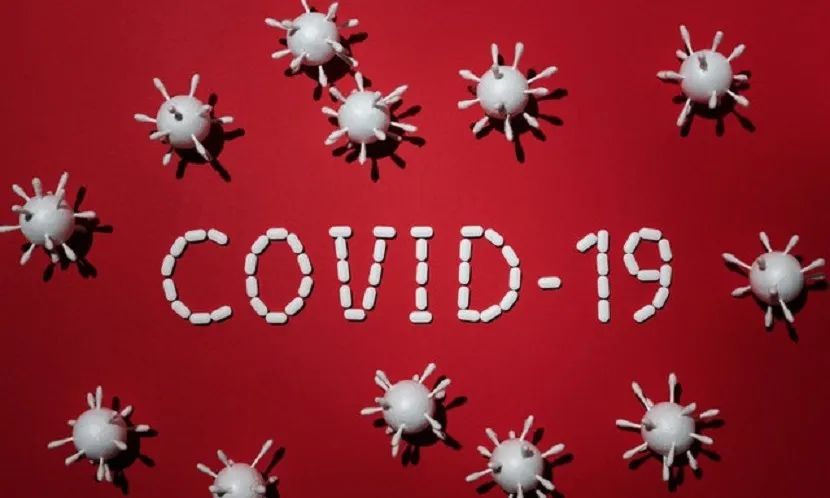- [课程通道] Gene Interference and Cat Allergen Silencing Research Project
- [课程通道]
- [科学少年] 2025-10-05
- [科学少年] 2025-10-02
- [科学少年] 2025-10-01
【JSR Interpretation】Will May Day Travel Lead to Reinfection? 爱博物 2025-09-14

【Preface】
Recently, "second-time COVID infection" has become a hot topic again. How can we determine if it is a second-time infection? Are our antibodies expiring? Do we need to get vaccinated again? We have invited Dr. Leng to provide further insights.

Lately, whether on social media or Weibo, second-time COVID infections have become a trending topic. Many people are concerned about the possibility of reinfection. Today, we will discuss this topic in detail.
First, it is important to clarify what a second-time infection, or reinfection, means.
In January or February, many people talked about second-time infections, but most cases were actually rebound infections. Rebound infections occur when the virus from the previous infection is not completely cleared and, under certain conditions such as weakened immunity, symptoms reappear or tests return positive. So, how do we clinically distinguish between rebound infections and reinfections? When testing for COVID, we typically use nucleic acid or antigen tests. However, these methods primarily detect whether a person is infected but cannot determine if it is a rebound or reinfection. To truly distinguish reinfection, characteristic analysis of the virus or genetic sequencing is required.
In one of JSR Academy's classic research topics, "Virus Identification and Species Determination," we cover the theoretical knowledge and guide students through experimental procedures. If students are interested, they can further explore this topic by joining Dr. Leng in the laboratory this summer.
Now, let’s discuss the issue of antibody decline and future trends.
First, since December last year, antibodies have undoubtedly waned for some people. This is inevitable. We know that COVID antibodies like IgM disappear quickly, while IgG lasts longer. However, based on current clinical data from various countries, the shortest duration for some groups may be less than a month, while for most people, it is between 3 to 6 months. This is one of the reasons why we have consistently stated that April to June this year marks the first peak period for reinfections.
Second, besides the decline in antibodies, another critical factor for COVID reinfection is immune escape.
Previously, the dominant strains in China were BA.5.2 and BF.7. Antibodies against these strains provided some cross-protection, which is why reinfections were rare in the past few months. However, as China gradually resumes international exchanges, including business visits and tourism, it is inevitable that strains prevalent abroad will be introduced into the country. This is why recent CDC monitoring has detected XBB, particularly XBB.1.16, which is spreading widely worldwide.
Even for groups whose antibodies have not waned, the latest and most immune-evasive strains pose a risk of reinfection. Based on this, April onwards is also a high-risk period for second-time infections.
Considering both factors, April to June is a high-risk period for second-time infections.
According to current frontline data, infections have been increasing since after the Qingming
Festival. Recent CDC sampling tests have confirmed this. Although the upward trend is not yet
significant, another critical time节点 during April to June is the May Day holiday travel. Therefore,
it is expected that CDC data will show an accelerated increase after May Day. This is not to
discourage travel during the holiday but to remind everyone to take precautions while traveling.
COVID is entirely different before and after overwhelming healthcare systems. As long as there is
no nationwide concentrated infection peak that overwhelms the healthcare system, providing a
buffer time for medical services, the disease will not pose a significant threat to society.
As for whether to get vaccinated, official explanations have been extensive. From my perspective, those who have never been infected must get vaccinated.
For those who have been infected, especially the elderly, obese individuals, or those with underlying health conditions, if it has been more than three months since infection, a booster shot is recommended.
For those under 18, whether infected or not, a booster shot is currently not necessary.
For other groups, vaccination can be considered based on individual circumstances.
For high-risk groups, besides vaccination and daily precautions, preparing medications is crucial. Based on clinical feedback, the most effective drugs are still 3CL protease inhibitors like Paxlovid. Some of these drugs have been gradually introduced domestically, and some people have already purchased them.
In summary, neither natural antibodies, nasal spray antibodies, nor vaccines can guarantee 100% protection against infection. Most infections will be mild, but a small portion may still be severe. Therefore, everyone must remain extra cautious. What we can do is to increase our chances of avoiding severe outcomes. Every precaution we take improves our odds.
That’s all for today. I hope this serves as a warning. Additionally, for those interested in virus testing, JSR Academy offers cutting-edge research projects on virus detection and species identification.
For more information, please contact IBOWU advisor:
Teacher Zhang: 13910908618 (also WeChat ID)
Teacher Zha: 13910312020 (also WeChat ID)
About IBOWU · JSR Academy
JSR Academy™ is China’s first youth science academy initiated by non-governmental forces. It was launched by IBOWU, a well-known platform for youth scientific research and academic programs in China, with the aim of providing high-quality scientific practice platforms for Chinese youth.
JSR Academy has received investments from BGI Group and TAL Education Group’s industry fund. With strong scientific and capital backing, JSR Academy has gathered dozens of multidisciplinary frontline scientists and partnered with dozens of university and research laboratory resources across China, the United States, Denmark, Norway, Singapore, Australia, and other countries. It is committed to providing students with advanced STEM academic programs and elite training plans, striving to cultivate the scientific spirit of Chinese youth and reserve talent for China and the global scientific community.



